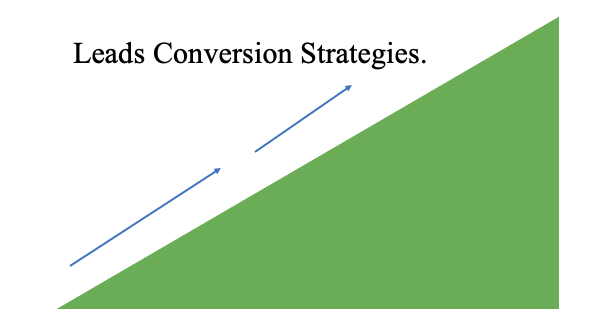Health insurance explained.
In the health insurance policy, there is an agreement between the insurer{the entity financially tasked with overseeing the medical bills of the customer} and the insured{the prospective beneficiary of the services thereafter} who happens to be either an individual or a group of persons whereby the insurer agrees to provide a specific health insurance cover at an agreed premium deposited by the prospective beneficiary.
Health insurance is also referred to as medical insurance.It’s a type of insurance that covers a whole or part of the risk incurred in medical expenses.
Five components of health insurance cover:
1.Primary health insurance,also referred to as basic health insurance
2.Secondary health coverage
3.Vision insurance
4.Dental insurance
Six types of health insurance
*Health Maintenance Organization{HMO}
*Preferred Provider Organization{PPO}
*Exclusive Provider Organization{EPO}
*Point-of-service plan{POS}
*Catastrophic plan
*High deductible health plan with or without a health savings account.
Seven Categories of Health insurance
1.physical
2.mental
3.intellectual
4.social
5.spiritual
6.environmental
7.occupational.
The categories are explained below:
-Physical wellness revolves around health related behaviors that you are advised to either engage in or abstain from in order to sustain your good health.It may include developing healthy habits like regular exercises or avoiding demeaning habits such as smoking or overindulging in alcohol consumption.
-Emotional wellness deals with processing emotions and happiness and having the ability to love and be loved.
-Intellectual wellness sticks with having a stimulant mind that can reason as expected of a person of a sane mind.
-Social wellness refers to the ability to interact successfully and respect the presence and opinions of those you surround yourself with.
-Spiritual wellness is having a set of guiding beliefs, principles or values that help give one a positive trajectory in life.
-Environmental wellness encompasses things that keep the earth safe.This includes avoiding habits that pollute the environment.
-Occupational wellness involves making use of your gifts and|or skills and talents to gain purpose in life and boost your level of happiness.
All these dimensions work in a concerted effort to contribute to the overall wellness of one’s health and an upgraded quality of life.
BENEFITS OF A HEALTH INSURANCE POLICY

Just like any other insurance program implemented, a health insurance policy has benefits in waiting for the bearer.Some of these benefits are highlighted below.
-The consultation fees charged by doctors upon visiting them to seek guidance on your health issues is already catered for in the policy.
-In the event your case is referred to a specialist who charges a relatively higher consultation fee,or it happens that you are enlisted for periodic check-ups,the medical cover stands in for the charges.
-Should you be hospitalized because of a serious illness,the insurer meets all the expenses accrued during your period of hospitalization which range from laboratory tests,cutting through accommodation to the treatment itself.
-The insurer also covers the costs of drugs recommended by the physician be it at the hospital pharmacy or obtained from a chemist that the insurance company professionally identifies with..
-The policy also covers the laboratory tests costs recommended by the doctor even before the actual analysis of the underlying problem.
-Some insurance companies also take care of ambulance costs incurred by the patient throughout their medication period.
-In some cases,a health insurance policy can extend the coverage to the policy bearer’s parents,parents-in-law,spouses and|or children.
By virtue of it being one of the most important purchases in life, health insurance has more advantages than disadvantages.Some of the merits and demerits of purchasing a health insurance policy are explained below.
Advantages of health insurance.
Financial protection-Having a health insurance policy helps one to be financially safe in other aspects of life that depend on your finances and which can be brought to a halt or given a setback because of the financial strain propagated by an unexpected illness of the self or a close beneficiary enlisted in the policy.
This financial protection helps one to avoid diverting money meant for other projects into covering the medical bills of the self or a dependant because they are already covered by the policy.
Availability of options-The diversity of the health insurance plans in the modern health insurance plans have also been set to incorporate other family members apart from oneself.
In addition to that,the risks to be insured against are also varied and range from personal accident plan,critical illness plan,group health plan to hospital cash benefit plan.
These varied options are advantageous to the prospective insured individual or group of persons to select a policy that best suits their requirements.
Cashless hospitalization-Most top rated health insurers have an extensive list of network hospitals which are frequented by their clients.
This makes it possible for the insured to have their bills cleared directly by the insurer instead of engaging in the rather cumbersome and somehow inconveniencing situation whereby the insured is called upon to clear the bills by themselves before seeking reimbursement by the insurance company.
But in the event the insured seeks treatment from a non-network hospital,reimbursement can still be effected at a later date.
No Claim Bonus benefit{NCB}-This is an advantage of health insurance that is limited to health insurance policy holders who happen to go through the whole premium paying period of one year and accomplishes all the required payments that qualify them to have their medical bills paid for but don’t file any claim during the whole insured period,normally one year.
The execution of this benefit differs from that of motor insurance in the sense that in health insurance,the premium charged after the renewal of the policy remains the same but the eventual claim by the insured is increased.
Availability of Add-Ons or Riders-These are differently purchased originally not included in the policy.Health insurance gives the option of extending the coverage of the policy such that its scope is increased.
This happens because some insurance plans don’t cover illnesses cancer, heart diseases or accidents.It therefore follows that with a certain addition to the premium paid while purchasing a basic insurance policy, these Add-Ons ensures that the policy covers such exclusions as well to avoid cases of underinsurance.
Tax benefit-Due to an increase in the number of companies offering health insurance, it has become advantageous to the insured because the companies put in place offers that regulate or scrap the taxation of their clients based on their age or difference in their earning classes.
This cutthroat competition among the the companies offering the insurance services works towards ensuring that the buyer of the policy settles for a policy that puts their interests based on their age and earning level at heart.
Peace of mind-Purchasing health insurance brings with it an immense feeling of safety.
The realization that the health demands of oneself and that of your dependent are guaranteed in the event of an unexpected illness is of great mental boost that allows one to concentrate more on other income generating activities and also seek fulfillment of life in other social partaking knowing that such demanding issues as health can be taken care of by the policy.
Disadvantages of health insurance.
Although the advantages of purchasing health insurance outweigh the disadvantages by far,just like any other implemented program,the plan has its disadvantages,however few and minor.
Some of them are explained below.
Premium increase with age-This is an expected disadvantage experienced by the insured.
As one grows older in age,the amount of premiums paid to maintain the policy increases because it is common knowledge that the increase in age comes with fraility.
It is therefore expected that a person is more susceptible to health deterioration as one ages the increase in the health risks warrants an increase in the premium to cater for the medical bills.
It is therefore advisable that one purchases health insurance policy when still young and in your prime so that the premiums are lower and therefore more beneficial to you while putting in medical expenses claims.
Waiting period for existing problems-This is a period that one has to wait before the insurer can cover the expenses of complications arising from a pre-existing condition by the time one was purchasing the policy.
These are conditions such as diabetes or blood pressure.Most of the health insurance plans have have a waiting period of 2-3 years before complications arising from such pre-existing conditions can start being covered by the purchased health policy.
NOTE:However, some insurance plans have nowadays incorporated clauses that have lowered the waiting period.
Co-pay clause-To prevent false claim-filing,many insurance companies have a co-pay clause that provides for sharing of the medical bills in percentage form between the insurer and the insured.
If the co-pay clause is 20%,it means that the insured has to pay 20%of any medical bill accrued during the period of the legibility of their policy while the insurer caters for the remaining 80%.
This normally comes with the advantage of the premiums paid by the policy holder being relatively lower.
With regards to the minor but decisive clauses normally included in the health plans,it’s generally advisable that one thouroughly inspects the policy and scrutinizes all the inclusions,exclusions and other such small clauses before making a purchase so as to ensure they purchase a policy that fully caters for their requirements.
WHO NEEDS HEALTH INSURANCE.
Because of the importance of health insurance,this question sounds rhetoric.Based on its convenience in solving medical bill impasses,health insurance is recommended for,thou not forced upon,everyone.
Health insurance helps to offset major and minor medical bills caused by health problems and since health problems can arise anytime in one’s life,it is of paramount importance that one purchases health insurance policy,albeit depending on an individual’s health requirements that the provisions of the policy outline.
For those in the capacity of employees, sometimes the employer offers health insurance as part of the employee benefits package but some employees are called upon to purchase health insurance through the health insurance marketplace.
Also, retirement plans should include health insurance coverage.Qualifications for individuals for the coverage may be through medicaid or medicare programs.
The cost of health insurance varies depending on the scope of coverage.The scope of coverage refers to the inclusions in the policy that determines the areas covered by the policy in the event of an illness.
Other factors that determine the cost of a policy are the type of plan you purchase and the deductibles associated with the purchased plan.
Basic terms associated with health insurance.
Health insurance deductibles.
This refers to a specific amount one must pay periodically for eligible healthcare services before the insurance policy is declared mature to take care of one’s medical bills incurred during the period of insurance.
The amount of these deductibles varies depending on the plan one chooses to purchase.
It should however be noted that even after the completion of the deductibles stipulated in your plan,one is still called upon to contribute a percentage of the total costs of medication incurred during that period.
These are payments in terms of CoPay and coinsurance.
CoPaaay-This is the share you may have to pick up for some services offered.It is normally at a set price depending on the amount of deductibles paid.
Coinsurance-This is a percentage that the insured pays and it basically involves sharing the bill between the insurer and the insured.The percentage is normally at a small or almost negligible level naturally in favour of the insured.
NOTE.It is worthy noting that a high deductible-lower premium plan helps activate Health Savings Plan{HSP} which facilitates free contributions towards the copay and coinsurance for its holders therefore making it more inclusive.
Underinsurance.
In health insurance, this refers to insufficient insurance policy that leaves the enrollee liable for a large financial expense of a serious health hiccup occurs.
This naturally works against the principle of health insurance whereby the larger part of the cost ought to be paid by the provider of the plan.
It therefore follows that inadequate health insurance can lead to heavy medical debts or bankruptcy, the unfortunate events that health insurance are supposed to be working against.
You can be underinsured if your policy has gaps or exclusions which are not covered.It can also happen if the claim exceeds the maximum amount that can be paid by the insurance policy.
How to avoid underinsurance in health insurance.
*Setting money aside to pay deductibles and copays that can shield one from being denied medical care that your policy does not stipulate.
*Opting for a low premium-high deductible if the prospective policy buyer is in good health and has previously received medical care regularly.
*Opting for a plan with a higher coverage if you happen to have a chronic illness or have not been having a regular medical check up previously.
*Being keen when choosing plans offered by employers to their employees because most of them have many exclusions that will leave you underinsured.
*Avoiding short term health insurance plans because they normally do not have a larger scope of coverage.They are normally limited in terms of coverage.
Health insurance premiums.
This is an upfront payment made on behalf of an individual or family to keep their insurance policy active.
These payments are made monthly by individuals or through pre-set payroll deductions in cases where the individuals receive their insurance payments through their employer.
And just like in the case of health insurance deductibles,it is also required that the consumer has to pay out-of-pocket costs when seeking medical care.
These include:
*Deductibles;the amount of the medical bill you have to pay before the insurance starts paying claims.
*Co Pays;a fixed amount of money the insured pays on top of the money paid to secure the policy in order to get some services.After payment of the same,the insurance provider pays all or part of the remaining amount.
*Coinsurance;this works in terms of percentages whereby there is a certain percentage of the incurred medical bill that the insured has to pay while the insurer pays the remaining amount.
It is worthy noting that the amount of these out-of-pocket expenses vary from one plan to another but typically,the higher the cost of your premium,the lower the out-of-pocket expenses.
Reimbursable out of pocket costs.
This,in relation to health insurance, refers to the out-of-pocket expenses that include deductibles,CoPay and coinsurance that an employee pays upfront using their own savings to cater for medical expenses incurred during their period as bona fide employees but meant to be reimbursed by the employer upon presentation of a filled claim forms to the employer.
There are normally payments for medical services that are not provided for in their health plan.
It normally happens when the insurer does not deal directly with the service provider that the insured sought medical treatment or if the medical expenses covered an area not within the inclusions in the bought plan.
The advantage of this particular scheme is that it is a kind of savings on the part of the employee because the money paid for by the employee for the accrued medical costs is bound to be reimbursed at a later date.
On the flip side, it can be a disadvantage because it can have a strain on one’s financial budget when it happens unexpectedly.
NOTE:Out-of-pocket is the amount you have to pay for a year in order to get medical services and it includes deductibles,co-pays and coinsurance whereas a deductible is the amount you pay out of your pocket until your health insurance company begins paying for your health care.
It therefore means that an out-of-pocket is any medical care that you pay and which is not covered by your insurance policy.They are copays or deductibles set by your insurance company but not covered in the policy.
Health reimbursement plan.
This is a written down set of rules and guidelines outlining an employer’s reimbursement policies.It stipulates all the procedures involved in the reimbursement process and what expenses can be reimbursed by the employer.
In health insurance, a health reimbursement arrangement provides for the employer to reimburse the employee for the qualified medical expenses paid upfront for their medical expenses and sometimes reimburses the premium paid.
The Health Reimbursement Arrangement {HRA} is not portable and therefore ceases to function immediately one ceases being a bona fide employee of a particular organization.
Basically,the government puts down the rules on what can be reimbursed but it is subject to refining by the employer to suit their own desires.
In some cases,the HRA can only cover up to a certain maximum defined fund before year end which means that the employee is called upon to cater for the subsequent bills that come after the exhaustion of the maximum set fund either out of their own pockets or using a high deductible health plan which offers this account.
Benefits of health reimbursement plan.
*It can be used to pay for any qualified medical expenses like prescription medication, birth control pills,crutches, insulin,psychologists and psychiatrists bills and all other medical expenses therefore making it have a large coverage scope.
*Employees can use HRA to buy their own comprehensive individual health insurance.
Limitations of health reimbursement plan.
*The coverage does not extend to expenses of maintaining general health like vitamins or services such as marriage counseling, non-prescription medication, funeral services or such services
Rules for offering health services by employer.

From a legal standpoint, there’s no federal law that states that companies must offer health insurance to their employees but under the Affordable Care Act{ACA},employers with 50 or more full time employees{employees working for over 30 hours a week} or the equivalent in part time employees must provide health insurance to 95% of their full time employees or face a penalty by IRS.
Due to the state of the legality of the matter,it therefore follows that no particular protocol is followed while offering health insurance to the employees provided there is no notable discrimination.
Subsequently,no employee can demand health insurance cover from the employer.As a voluntary benefit,it can be offered on the same terms to a specific group within the organization for it to be unbiased.
It would therefore be illegal,for instance,for an employer to provide health services to women and not men,Caucasians and not African Americans or any other protected characters by the different state laws.
If the employer chooses to provide health insurance to its part-time workers{those working between 20-29 hours a week},all of them should be offered coverage regardless of the medical conditions of the employees on their previous medical conditions otherwise known as pre-existing conditions.
The eligibility of the employee covered depends on the terms of the employer but virtually all the employers require that a certain number of employees are covered in their plan.Eligible employees include those on paid vacation, maternity or sick leave amongst other bona fide employees.
Those on unpaid leave,temporary employees,seasonal employees,retirees,independent contractors and employees covered under collective bargaining agreement are considered ineligible.
Generally,the coverage is also offered to employees’ legal spouse and dependent children,though the age limits of the dependent children vary from plan to plan.
Employees may also opt to extend health benefits to unmarried domestic partners of either sex but only after they sign an affidavit of domestic partnership to ascertain that they are living together and intend to continue living together in a committed relationship for an I definite period.
This requirement is meant to prevent employees from extending the privilege to people who are merely their roommates at that particular period of their employment.
It can therefore be summarised that with the enforcement of the Affordable Care Act,many citizens got the privilege of benefiting from a health care program that is affordable to many,if not all.
We therefore learn that health being pivotal and at the centre stage of everyone’s life,health insurance is a very important purchase and therefore recommended for all.







